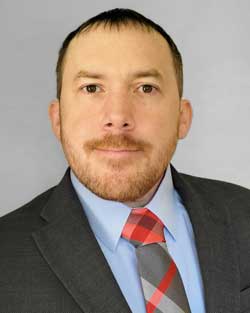
Dr. Kevin Robb is the Energy Systems Development Group Leader within the Nuclear Energy and Fuel Cycle Division (NEFCD) at Oak Ridge National Laboratory (ORNL). His primary research interests are in thermal-hydraulics and nuclear reactor safety. Kevin is supporting the development of high-temperature molten fluoride and chloride salt technology. End applications include a new generation of molten salt nuclear reactors and concentrating solar power plants. Two large-forced convection loops at ORNL highlight these efforts, the fluoride salt LSTL and the chloride salt FASTR. He supported the domestic post-accident analyses of the 2011 accidents at Fukushima Daiichi and is the lead at ORNL for the ongoing data collection and forensics work. Kevin received his BS degrees in Mechanical Engineering and Nuclear Engineering from Pennsylvania State University. He received his MS and PhD degrees in Nuclear Engineering and Engineering Physics from the University of Wisconsin-Madison..
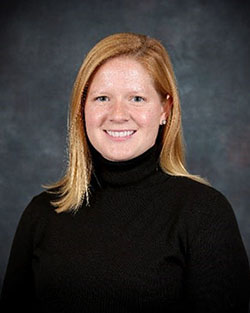
Dr. N. Dianne Bull Ezell is the group leader for the Nuclear & Extreme Environment Measurements Group. She joined ORNL as an R&D Staff member in July 2011 and completed a PhD in 2016 focusing on signal processing of EMI rejection for Johnson Noise Thermometry, funded by the Small Modular Reactor Program. Dianne has supported the MSR Campaign focusing on technology maturation with the development of a corrosion monitoring sensor and design and fabrication of a prototypic off-gas system testbed. She also was the lead designer of the first-of-its-kind chloride salt study investigating effects of irradiation on corrosion advancement. Dianne recently stepped into a new role as project manager of the development of thermophysical property characterizations within the chemistry program. She has extensive experience with development and deployment of high-temperature experiments and data acquisition, analysis, and visualization. Dianne received a BS in Electrical Engineering (2007) and an MS in Electrical Engineering (2009) from The University of Tennessee with research focused on integrated circuit design. Dianne has been an active member of the Institute of Electrical and Electronics Engineers since 2005 and has served on the local East Tennessee Executive Committee for over five years. She was nominated for senior membership in 2017.
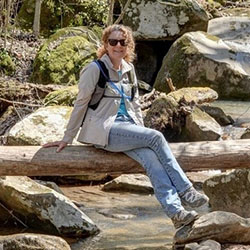
Dr. Joanna McFarlane (PhD in Chemistry, 1990, University of Toronto, Canada) has been with ORNL since 2001. Before coming to ORNL, she worked at the Atomic Energy of Canada Ltd Whiteshell Laboratories, Manitoba, Canada. While at Whiteshell, Joanna researched the physical chemistry of fission products, ran Knudsen cell experiments on fission product simulants (e.g., Cs2U2O4), investigated aerosol chemistry related to severe reactor accidents, and studied the transport of fission products in reactor primary heat transport systems using thermodynamic modeling. At ORNL, she is in the Fuel Cycle Chemistry Group within NEFCD. Joanna’s recent experience in nuclear research includes fuel cycle chemistry, the chemistry of fission products in MSRs, the purification and characterization of molten salts, and the measurement of thermochemical and thermophysical properties. She has also assisted with the separation of Pu-238 from irradiated Np-237 target materials supporting NASA’s future deep space missions. She has also participated in a wide variety of projects while at ORNL: the magnetic separation of UO2 particles; the production of biodiesel using a centrifugal contactor; the development of a high temperature organic heat transfer fluid for concentrating solar power; and has ongoing interest in fluid-rock interactions relevant both to nuclear waste disposal and petroleum extraction.
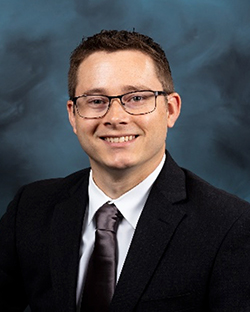
Dr. Alex Huning is the Risk Methods and Analysis Group leader within NEFCD at ORNL. His research interests include reactor safety and analysis of accident phenomena, probabilistic risk assessment (PRA), and licensing processes for advanced nuclear systems. For instance, he is serving as the Systems Integration and Analysis lead for the Microreactor Program. He is also the regulatory lead for the Transformational Challenge Reactor program aiming to reduce qualification time of additively manufactured components. He is also engaged on many other endeavoring projects which include molten salt reactor safety analysis and design, mechanistic source term, and systems-level modeling and simulation using the ORNL developed suite of Modelica packages, TRANSFORM. Alex earned his PhD and MS in Nuclear Engineering from Georgia Tech and BS in Nuclear Engineering from Texas A&M.
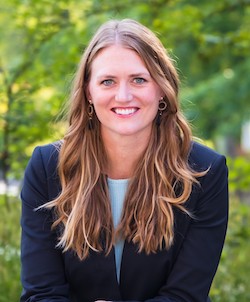
Ms. Karen Koop Hogue is a Staff R&D Scientist in the Verification Technologies group. She has 15 years of experience in nuclear nonproliferation and reactor operation. She joined ORNL in 2020 with a primary research area of advanced reactor safeguards, focusing on molten salt reactors. Prior to joining ORNL, she was a Program Manager in Nuclear Nonproliferation R&D at Y-12 National Security Complex, an Officer in the U.S. Navy instructing reactor theory at Naval Nuclear Power School and has led and supported nonproliferation and international safeguards R&D at Lawrence Livermore National Laboratory, the James Martin Center for Nonproliferation Studies, and the IAEA (as chair of and participant in consultancy meetings related to facilities undergoing decommissioning). She is currently also a PhD candidate in Nuclear Engineering at the University of Tennessee – Knoxville. Karen received her master’s degree in Nonproliferation and Terrorism Studies from the Middlebury Institute of International Studies at Monterey and her bachelor’s degree in nuclear engineering from Texas A&M University.
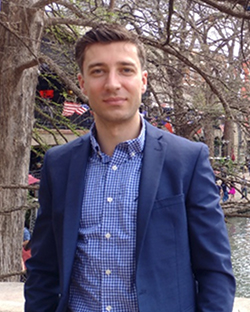
Dr. Dino Sulejmanovic (PhD in Chemistry, 2015, Clemson University) is a research and development chemist at ORNL (2018-present). He is currently working on developing materials for clean and sustainable energy production. Dino is the technical lead for purification and characterization of halide salts for use in next generation nuclear reactors and solar thermal storage applications. Throughout his professional career, molten salt research has been central to Dino’s work in both synthesis of new oxide/chalcogenide materials and the use of molten salts as solvents of fissile materials and thermal storage media for next generation reactors. Currently, Dino and his team are developing technologies that will enable clean and sustainable future of energy production. During his work at a startup company, Lumenari Inc., Dino synthesized novel europium-based red and green narrow-band phosphors for improved efficiency of LED-lighting. His dissertation work was on synthesis and characterization of novel polyoxometalate salt-inclusion solids.
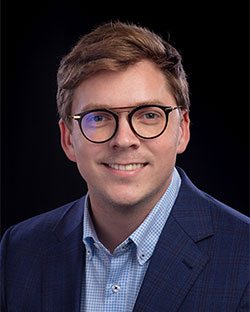
Hunter Andrews is an R&D Associate in the Isotope Applications Research Group within the Radioisotopes Science and Technology Division. He first joined ORNL as a postdoctoral researcher in the spring of 2020 and transitioned to his current role in the summer of 2021. His research focus revolves around the development of in-situ, online monitoring tools for complex environments. His main expertise lies in optical spectroscopy, particularly laser-induced breakdown spectroscopy (LIBS), a rapid form of spectroscopy capable of elemental analysis regardless of sample form. Other research interests include analytical chemistry, electrochemistry, spectroelectrochemistry, neutron imaging, molten salts, chemometrics, and machine learning.
Dr. Andrews received his Ph.D. in Mechanical and Nuclear Engineering from Virginia Commonwealth University in 2020. His graduate research focused on the near-real time material detection through combined implementation of electrochemistry and LIBS for molten salt systems.
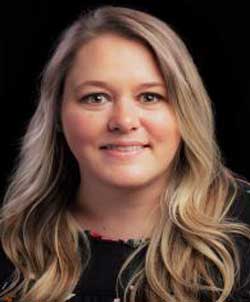
Molly Setzer is a Section Head and Group Administrative Assistant in the Fusion and Fission Energy and Science Directorate in the Nuclear Energy and Fuel Cycle Division. She provides administrative support to Andrew Worrall, Section Head of the Integrated Fuel Cycle Section, who also serves as the Deputy Director for GAIN and the U.S. Department of Energy, Office of Nuclear Energy (DOE-NE) UK Country Coordinator. Molly also provides support to Dave Kropaczek, Director of Industry Technology Innovation, who is also the Deputy Technical Director for the DOE Nuclear Energy Advanced Modeling and Simulation (NEAMS) program; and Timothy Valentine with the Radiation Safety Information Computational Center (RSICC) and the RSICC group.
This film was produced in 1969 by Oak Ridge National Laboratory for the United States Atomic Energy Commission to inform the public regarding the history, technology, and milestones of the Molten Salt Reactor Experiment (MSRE). Oak Ridge National Laboratory's Molten Salt Reactor Experiment was designed to assess the viability of liquid fuel reactor technologies for use in commercial power generation. It operated from January 1965 through December 1969, logging more than 13,000 hours at full power during its four-year run. The MSRE was designated a nuclear historic landmark in 1994.
Video shows a demonstration of replacing the major components of a molten salt reactor mock-up built by ORNL in the late 1950s - early 1960s using remote handling technology.